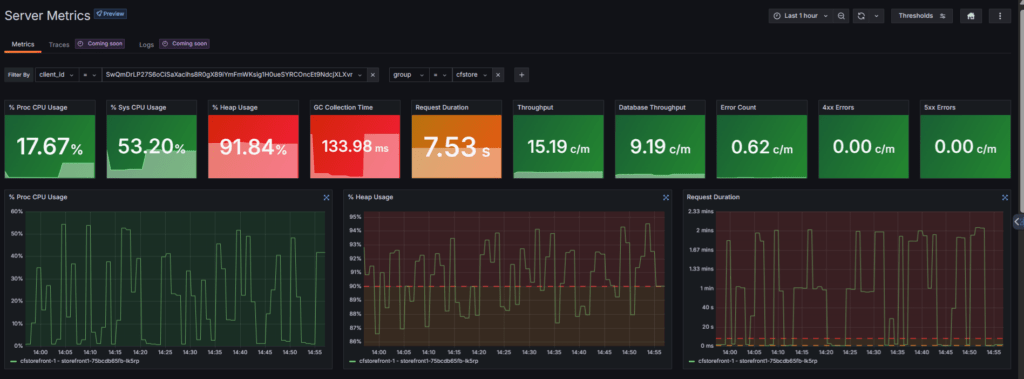The 80/20 Rule of Friday Deployments
In the world of DevOps and SRE, we often talk about the Pareto Principle – the famous 80/20 rule. At FusionReactor, we’ve built our observability platform around this principle, understanding that 80% of your critical issues can be caught by monitoring 20% of your key performance indicators. But there’s another “80/20” we need to talk about: The Friday Effect.
The Data Tells a Story
Let’s look at what the research tells us about Friday deployments:
- PagerDuty’s State of Digital Operations report reveals a 21% spike in critical incidents on Fridays compared to other weekdays
- GitHub’s analysis shows Friday pull request merges have a 20% higher failure rate during integration
- Gartner research indicates that post-Thursday deployments are 4-5x more likely to cause service disruptions
- VictorOps found weekend incidents take an average of 15.3 minutes longer to resolve
Why Fridays Are Different
The “Friday Effect” isn’t just about timing – it’s about risk amplification. Here’s why:
- Reduced Support Coverage: Teams are transitioning to weekend schedules
- Cognitive Fatigue: Decision-making capabilities are naturally lower after a full week
- Rush to Deploy: The pressure to complete work before the weekend
- Limited Response Time: Critical hours are lost during the weekend if things go wrong

The FusionReactor Approach
Following our 80/20 philosophy, we’ve identified that focusing on these key areas yields the most significant risk reduction:
The 20% That Matters Most:
- Application Performance Metrics
- Error Rate Monitoring
- Transaction Tracing
- Resource Utilization
- User Experience Metrics
This Covers 80% of Common Friday Issues:
- Memory leaks from rushed deployments
- Undetected configuration errors
- Performance degradation
- Database connection issues
- Cache invalidation problems

Best Practices for Friday Deployments
If you must deploy on Friday, here’s how to do it safely:
- Enhanced Monitoring Windows
- Extend observation periods
- Set lower threshold alerts
- Enable additional logging
- Deployment Timing
- Schedule before noon
- Allow for same-day rollback window
- Ensure key team members are available
- Response Protocol
- Have a clear rollback strategy
- Maintain an updated incident response plan
- Keep communication channels open
- Observability Focus
- Monitor the critical 20% of metrics that indicate 80% of potential issues
- Use automated anomaly detection
- Enable real-time alerting
The Cost of Ignoring the Friday Effect
Consider these impacts:
- Extended Mean Time To Resolution (MTTR)
- Higher customer impact due to weekend timing
- Increased stress on on-call teams
- Potential revenue loss during peak weekend hours
Why Your Observability Strategy Matters Most Before Weekends
The “Friday Effect” isn’t just DevOps folklore – it’s a documented phenomenon backed by data. By applying the 80/20 rule to your observability strategy, especially on Fridays, you can significantly reduce your risk exposure. FusionReactor’s platform is designed with this principle in mind, helping teams focus on the metrics that matter most when they matter most.
Remember: The best Friday deployment strategy is backed by robust observability. Whether you deploy on Fridays or not, having the right monitoring in place makes all the difference.
Want to learn more about how FusionReactor can help you manage the Friday Effect? Contact our team for a demo of our observability platform.










